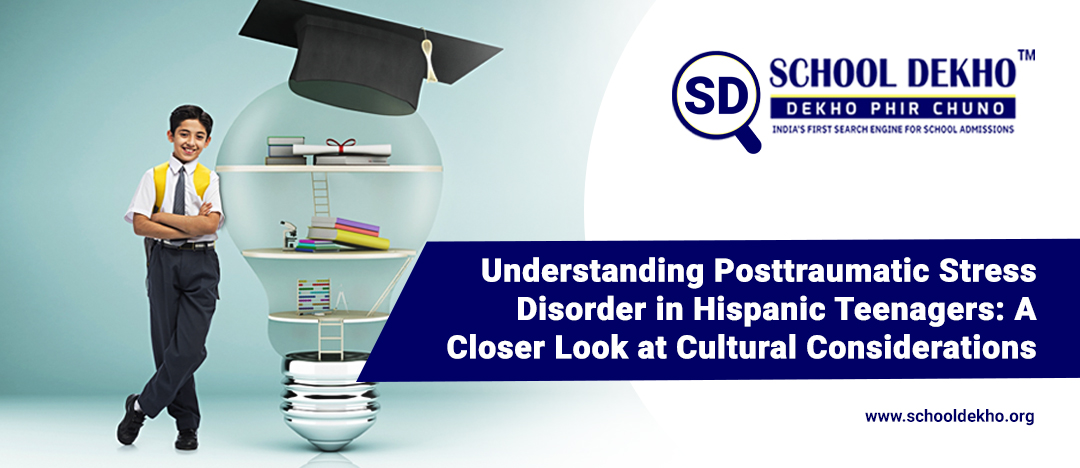
Understanding Posttraumatic Stress Disorder in Hispanic Teenagers: A Closer Look at Cultural Considerations
Posttraumatic Stress Disorder (PTSD) is a severe mental health condition that can affect individuals of all ages and backgrounds. Among teenagers, the prevalence of PTSD is particularly concerning, and the impact it has on their lives can be profound.
This article focuses specifically on Hispanic teenagers, examining the unique challenges they may face when coping with PTSD and the importance of cultural considerations in providing effective support and treatment.
Understanding Posttraumatic Stress Disorder
PTSD is a mental health disorder that occurs after experiencing or witnessing a traumatic event. These events can include physical or sexual assault, natural disasters, serious accidents, violence, or even the sudden loss of a loved one. In Hispanic teenagers, common trauma triggers might be related to immigration experiences, acculturation stress, discrimination, or family-related stressors.
Symptoms of PTSD can manifest in several ways, such as intrusive thoughts, nightmares, flashbacks, hyperarousal, avoidance behaviors, and emotional numbing. These symptoms can disrupt daily life and significantly impact academic performance, relationships, and overall well-being.
Unique Challenges Faced by Hispanic Teenagers
Hispanic teenagers might encounter specific challenges when dealing with PTSD, primarily related to cultural and social factors. Acculturation, or the process of adapting to a new culture, can lead to a clash between the values and traditions of their heritage and those of their host culture. Straddling two worlds can create confusion and added stress, making the already difficult journey through adolescence even more complex.
Moreover, many Hispanic families prioritize collectivism and interdependence, emphasizing strong family ties and shared responsibilities. While this support can be beneficial, it may also deter teenagers from discussing traumatic experiences openly, fearing that they might burden or shame their families. The stigma surrounding mental health issues in some Hispanic communities might further hinder seeking professional help, preventing teenagers from accessing the treatment they need.
Cultural Considerations in Treatment
Effective treatment for Hispanic teenagers with PTSD must incorporate cultural sensitivity and tailored interventions. Mental health professionals should be aware of cultural nuances, values, and beliefs that might influence the way adolescents express their emotions and experiences. A few important considerations include:
- Language: Ensuring that therapy is conducted in the teenager's native language can significantly improve communication and facilitate a deeper understanding of their experiences and emotions.
- Familial involvement: Involving the family in therapy sessions can be beneficial, as it aligns with the collectivist nature of Hispanic families and helps create a supportive environment for the teenager.
- Respect for traditions: Recognizing and respecting cultural traditions and practices can foster trust between the teenager and the therapist, making them more receptive to treatment.
- Community support: Partnering with community leaders and organizations can help reduce mental health stigma and promote access to mental health resources.
Conclusion
Posttraumatic Stress Disorder is a serious mental health condition that can profoundly impact Hispanic teenagers. The unique challenges they face require culturally sensitive and tailored approaches to treatment and support. By understanding the cultural context and values that influence their experiences, mental health professionals can provide more effective interventions, helping Hispanic teenagers on their journey toward healing and resilience. Creating awareness and promoting mental health discussions within Hispanic communities will further contribute to breaking down the stigma surrounding mental health issues, ensuring that teenagers get the help they need to recover from trauma and lead fulfilling lives.
Contact with Us
Call: 1800 - 2588 - 074
Mail: info@schooldekho.org
Student’s Best Education Portal | School Dekho | India's First School Search Engine | Best Schools Near Me | Find Schools Near Me | Dekho Phir Chuno
#dekhophirchuno







Leave your thought here
Your email address will not be published. Required fields are marked *